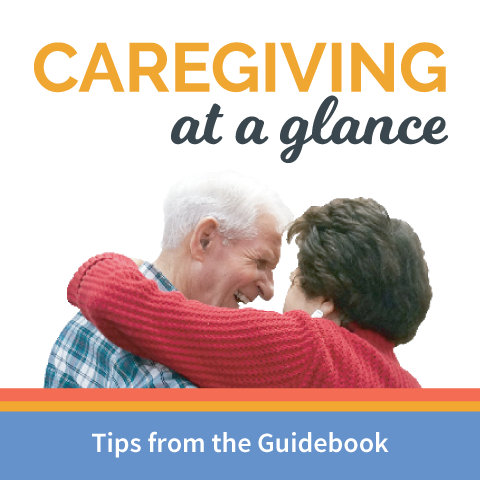
Tips from the Guide: Wandering
If you’ve had a loved one prone to wandering, you know how stressful this topic can be. You may find yourself constantly:
- worrying about the person getting lost or hurt,
- feeling trapped, locked inside your own home,
- tired of watching the person constantly “on the go,”
- frustrated by how clever a person can be about getting out or how fast he/she can move, or
- sure that your person with dementia will never walk away because he/she never has.
The caregiver has to decide how much “freedom” a person with Alzheimer’s disease should have. At some point the person’s need to be safe will outweigh their diminished ability to decide where they want to go and when. Here are a few tips to ease wandering concerns.
- Sign your loved one up for a national wandering prevention program, such as the Alzheimer’s Association’s Safe Return or Project Lifesaver.
- Consider a GPS tracking device to help locate the person.
- Inform your neighbors about the possibility of wandering and give them specific instructions about what to do.
- Take supervised walks and include opportunities for exercise in a person’s daily routine.
- Dress your loved one in bright clothing, especially if you’ll be somewhere you need to find them in a crowd.
- Try “sock therapy.” A person who normally wears shoes outside may not leave if he is in just socks. Put the shoes somewhere out of sight.
- Try to keep ID on the person. It may not be feasible that they’ll always have a wallet on them, but consider other options like medical ID jewelry or sewing their name and contact information into their jacket.
- Hang bells on doorknobs to alert you to opening of taboo doors.
- Install locks that open by key on the inside of the door, wear the key yourself or hang it hidden from view.
- For those in the earlier stages, try a “Do Not Enter” sign on the door. Alternatively, try adding signs with words or pictures for doors your loved one uses often (bedroom, bathroom), so they don’t wander out the front door when simply looking for the bathroom.
These are just a few tips from Caregiving at a Glance, our fingertip guide for families caring for a loved one with Alzheimer's. Techniques and strategies to empower caregivers address topics such as: troublesome behaviors, communication, eating, bathing and more, all compiled from families at Insight Memory Care Center. While each individual’s dementia journey is unique, we have found that using these techniques can empower you as a caregiver. Get your copy of Caregiving at a Glance!
If you’re looking to learn more, join us for our new Caregiving at a Glance Workshop series beginning in April. A small cohort of caregivers can learn from experts in the field – and each other! – as we work through the guidebook. Learn more!
Blog
"I like that IMCC focuses on dementia-related problems and provides a focal point for families to network and socially interact in coping with dementia. It provides a community that helps us in our struggle."







